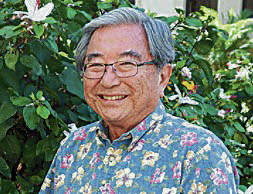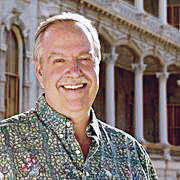Column: Legislature should let public see police misconduct records

Gerald Kato

Jeff Portnoy


As it currently stands, if the tragedy in Minneapolis had happened here in Hawaii, you would not know the name of the officers involved unless and until they were charged criminally. You would not know whether the officers were ever subject to any prior misconduct complaints. This information currently is secret.
Here’s why.
Back in 1993, the Legislature determined that information about police misconduct resulting in suspension or firing was sufficiently serious that it should be open to public disclosure. Students in the University of Hawaii Chapter of the Society of Professional Journalists (SPJ) requested disciplinary records from the Honolulu Police Department.
After sitting on the request for six months and demanding $20,000 for a search of its records, HPD announced it intended to comply with the law. But before doing so, the police chief notified officials of the State of Hawaii Organization of Police Officers (SHOPO), the police union, and invited them to challenge the law, which they did. Leaders at City Hall, including city attorneys, joined in supporting SHOPO to keep the records secret.
In March 1994, then-Acting Circuit Judge John Lim heard arguments in the case involving SPJ’s request to release the records. SHOPO put on a big show of force, packing the courthouse with hundreds of off-duty police officers protesting disclosure. Nonetheless Lim ruled the public had a right to know, saying from the bench: “The public has a right to know, and therefore it does know and because it knows, it insists that its police officers observe individual rights and protections at the same time it serves the public and protects the public.”
Eventually, the Hawaii Supreme Court, in a landmark ruling, would uphold the principle that the information was not protected by the Hawaii Constitution’s privacy provision and was subject to disclosure by the state’s open government law despite provisions in SHOPO labor contracts that such matters were confidential.
Don't miss out on what's happening!
Stay in touch with breaking news, as it happens, conveniently in your email inbox. It's FREE!
Since SHOPO and the city couldn’t win their case in the courts, they went to the Legislature. If the law wasn’t on their side, then their solution was to change the law. In 1995, state lawmakers, even as they spoke about accountability and openness, were more than willing to comply with the “SHOPO bill.” The bill exempted police officers from Hawaii law that gave the public the right to know critical information, such as the names of officers and the disciplinary actions taken. With strong backing by the Judiciary chairs in both House and Senate, the bill effectively denied public oversight to ensure that officers properly performed their duties. Then-Gov. Ben Cayetano failed to veto the bill.
Since then, we’ve learned the hard way that this secrecy regarding police misconduct contributes to corruption and public mistrust of local police forces.
In the aftermath of the corruption scandals involving former Chief Louis Kealoha and complaints of excessive use of force, lawmakers have given lip-service to the need for more police accountability. A bill was even introduced requiring disclosure of police misconduct information — but has been languishing in a Senate-House conference committee since the end of the 2019 legislative session. The death of George Floyd might provide momentum for lawmakers to move beyond rhetoric and enact what amounts to a minimun reform by providing names of officers and details of current and past misconduct.
The Hawaii Legislature failed in its chance 25 years ago to be at the forefront of police reform. With today’s national spotlight on the issue, it is time for the police, government officials, and the public to engage in a serious conversation — and enact legislation that acknowledges that there are problems, and that opening up the process to greater public scrutiny is a step toward solving those problems.
Honolulu attorney Jeffrey S. Portnoy was recognized with the national First Amendment Award in 1995 for his work with the UH Chapter of the Society of Professional Journalists; UH professor Gerald Kato received the national SPJ student chapter adviser of the year award.



